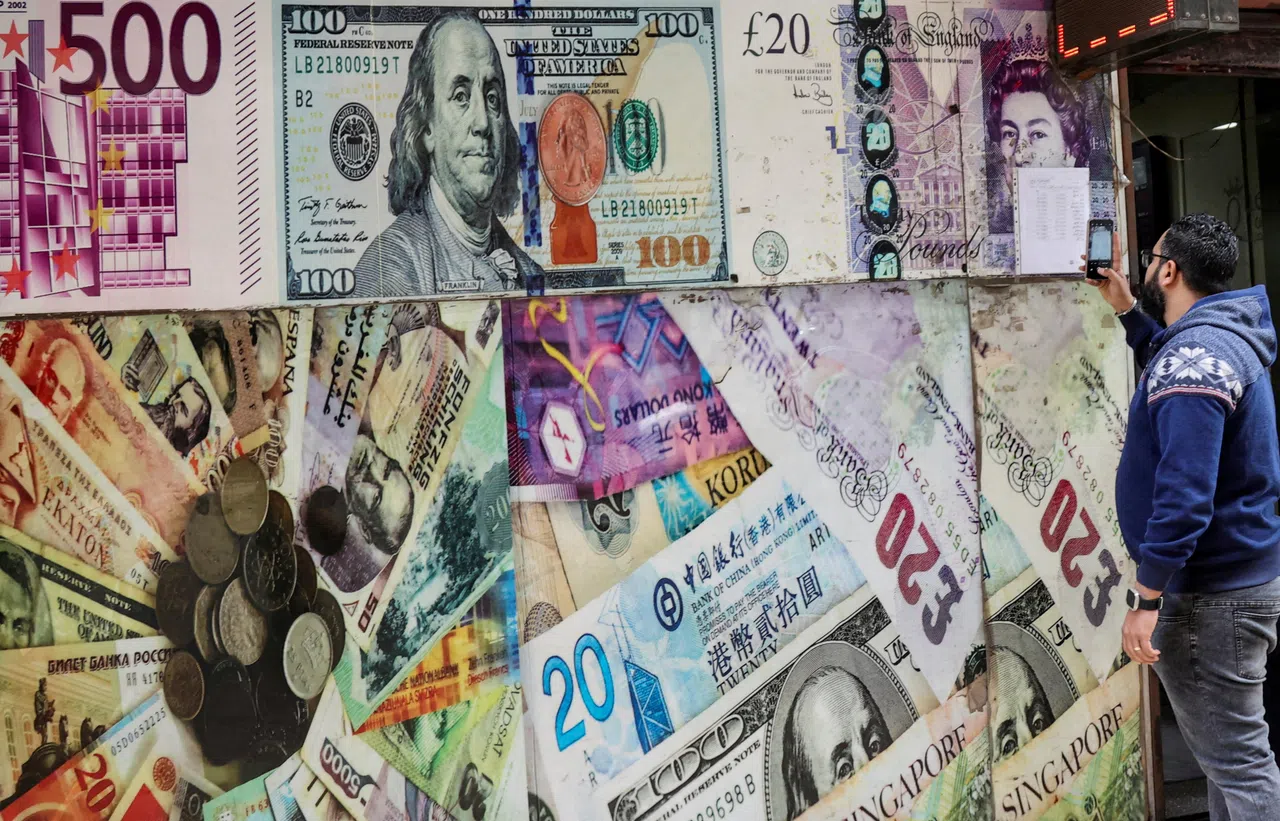ASIAN currencies rallied to the highest since March as ebbing US recession concern, bets on Federal Reserve rate cuts next month and an improving domestic backdrop lifted sentiment in the region.
The Bloomberg Asia Dollar Index gained as much as 0.5 per cent on Monday (Aug 19) to the highest level since March. The Malaysian ringgit led the regional advance on upbeat growth prospects and the Thai baht rose on easing political tensions.
“It feels like a Goldilocks scenario, where US recession fears fade while growth momentum in the region remains moderate,” said Christopher Wong, a foreign-exchange strategist at OCBC. “There is room for Asia ex-Japan currencies to recover against a backdrop of developed-market central banks largely on an easing bias.”
The ringgit rose as much as 1.3 per cent to 4.3750 per US dollar, the strongest since February 2023. On Friday, the nation reported a stronger-than-expected increase in second-quarter gross domestic product from the previous year, while global funds poured the most cash into its stock market since June.
The baht extended gains to 34.42 per US dollar, the highest since January after Paetongtarn Shinawatra on Friday won enough votes in parliament to become the next Thai prime minister. That helped to quell initial concerns of a protracted political vacuum after the previous premier was removed by the Constitutional Court due to ethical violations.
The South Korean won also rallied 1 per cent to 1,338.20, the highest since March, followed by the Taiwan dollar with 0.7 per cent gain.
Goldman Sachs Group economists on the weekend lowered the probability of a US recession in the next year to 20 per cent from 25 per cent, citing last week’s better-than-expected US retail sales and jobless claims data. They also said they were “more confident” the Fed will cut interest rates by 25 basis points at their September policy meeting.
Traders will be watching for clues on Fed easing when chairman Jerome Powell speaks at Jackson Hole symposium later this week. BLOOMBERG




